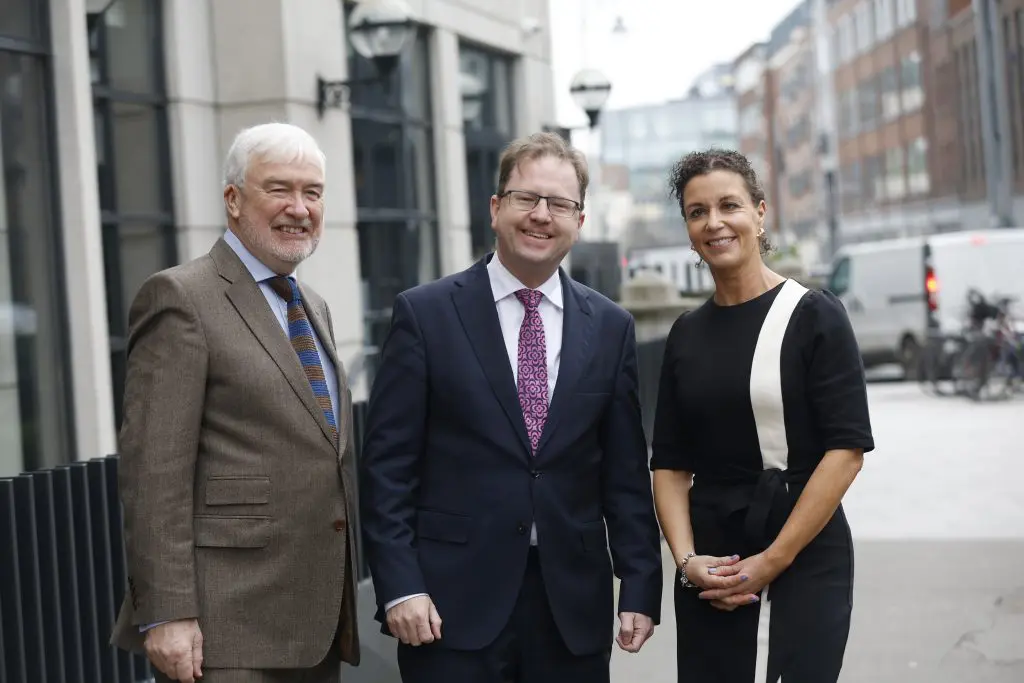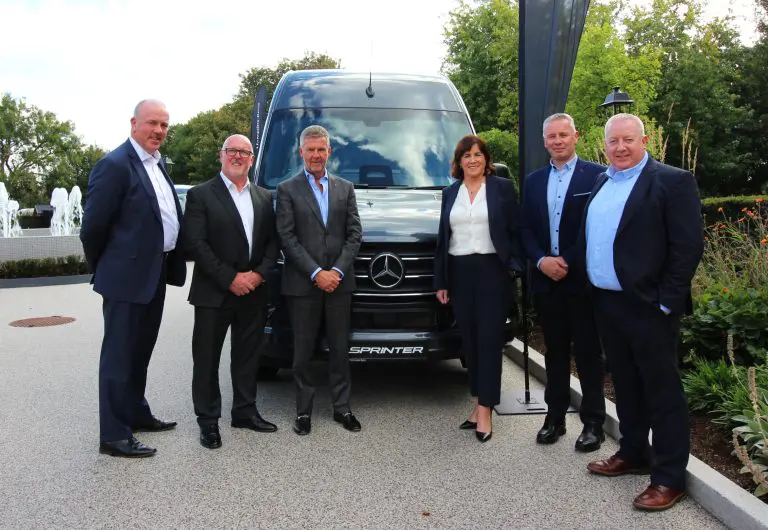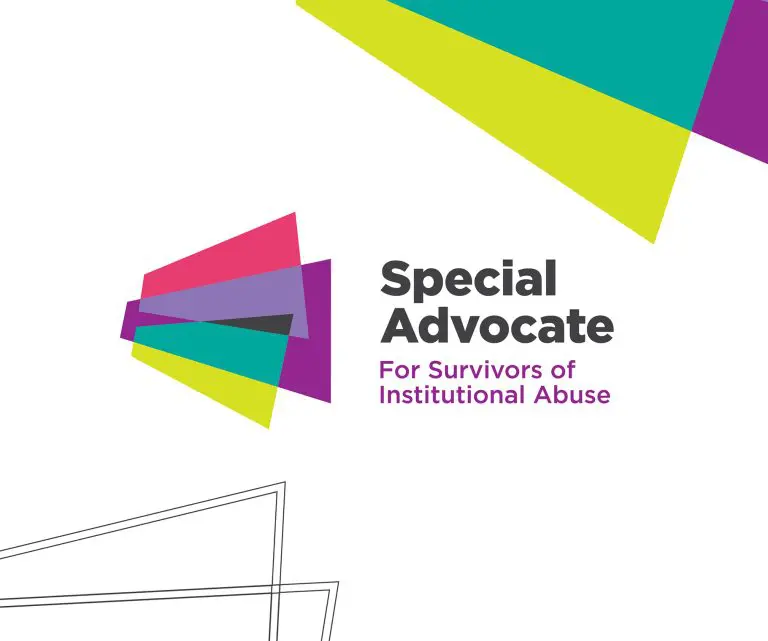Higher Education leaders discuss expansion of RPL across Irish institutes
Education leaders, learners, policymakers and industry professionals gathered on Monday at The Alex Hotel in Dublin for “RPL in 2025: Outcomes, Reflections & Next Steps”, a key event in shaping the future of Recognition of Prior Learning (RPL) in higher education.
Hosted by the Human Capital Initiative’s (HCI) National RPL in Higher Education Project, the event highlighted the significant progress made in RPL across Ireland and was supported by Minister for Further and Higher Education, Research, Innovation and Science James Lawless.
RPL Ireland is a national project funded by the Higher Education Authority’s Human Capital Initiative, working in partnership with 14 higher education institutions across Ireland, the IUA and THEA. The project allows learners to gain entry to higher education programmes or receive exemptions based on their prior learning—whether it’s formal, non-formal, or experiential. Since the project commenced, around 12,000 learners have benefited from it, gaining access to higher education through RPL across the 14 partner institutions.
Speaking at the event, Minister Lawless said: “ RPL is a vital tool for ensuring Ireland’s education system remains inclusive and flexible, and aligned with the needs of the labour market.
“As a country, our greatest asset is our people. It’s critical that every individual, regardless of background, prior experience or particular journey to that point, gets the opportunity to contribute and benefit from the knowledge economy,” he said.
“This is where Recognition Of Prior Learning plays a vital role, to allow people to contribute to the maximum of their potential. And it’s not just about formal qualifications. It’s about acknowledging the full breadth of knowledge that individuals gain through life experience, work, and through informal learning,” the Minister said, adding that RPL was an essential to keeping the Irish knowledge economy competitive, adaptable, and inclusive, he said, that values the learning that happens outside the classroom.
“To date the government has invested over €7.4 million in the National RPL in Higher Education Project, funding policy development, staff training, and system integration through the Human Capital Initiative. My Department is working closely with the Higher Education Authority and the Sector to embed this transformative framework across the system as committed to in the National Strategy for Higher Education to 2030, which emphasises the need for a national RPL framework to ensure all higher education providers apply RPL consistently.
Launching the publication of its report ‘RPL in 2025: Outcomes, Reflections, and Next Steps’, Dr Ciara Staunton, RPL Project Director, emphasised that RPL not only yields positive outcomes for learners, educators, and employers, but also holds untapped transformative potential for upskilling and reskilling Ireland’s workforce.
RPL aligns with the Government’s Lifelong Learning Agenda and contributes to a sustainable economy and an equitable, democratic society. For learners, RPL can significantly boost self-confidence, validate their past experiences, and open new career opportunities, ultimately enhancing their personal and professional growth.
On Monday, she called for continued commitment from higher education institutions and further collaboration with industry partners.
RPL is a process that recognises and rewards individuals for their prior learning, whether through formal education, work experience, or other life experiences, which might otherwise go unacknowledged.
Dr Staunton said the project’s success was reflected in the collaborative efforts of the 14 partner higher education institutes nationwide. While further work is required within institutional systems, early data indicates that approximately two per cent of learners benefit from RPL, but this is likely an underestimation.
Dr Staunton said: “Continued investment in training can pivot RPL from the periphery to a core component of teaching and learning, comparable to the advancements made in the universal design for learning or inclusive curriculum design spaces”, adding that the project had launched a toolkit to further support staff training. Continued professional development opportunities in RPL are vital to ensure that the practice of RPL becomes a central component of institutional activity.
“By validating their prior knowledge, RPL allows learners to present all forms of learning, granting them direct access to academic programmes or exemptions from specific modules. This is particularly beneficial for individuals who may lack traditional qualifications but possess valuable skills and knowledge gained through work or life experiences.”
“In today’s fast-evolving world, where workforce demands are shifting due to challenges like digitalisation, automation, AI and climate change, RPL is essential for ensuring the continuous development of skills,” said Dr Staunton.
Dr Staunton said while many higher education institutions have fantastic collaborative relationships with industry partners, RPL is another tool that can bridge the gap between academic learning and industry needs. Where such relationships already exist, RPL has proven invaluable in fostering meaningful partnerships with industry and empowering workers to achieve their full potential.
RPL collaborated with UCC and Kostal Ireland, a global leader in electronic and mechatronic manufacturing, in 2023 to support the upskilling of Kostal’s production operators across its Cork and Limerick facilities, by using RPL to gain access to a university accredited programme. “The majority of this cohort had little formal education post-Leaving Certificate, but many had more than 10 years of experience in the workplace,” said Dr Staunton.
“By using RPL for entry, Adult Continuing Education (ACE) at UCC and with the support of IRD Duhallow Skillnet, made higher education more accessible and inclusive which resulted in the Kostal students achieving a Level 7 Certificate in Work and Organisational Behaviour.”
Meanwhile, the preliminary findings of an external evaluation of the project by consultants ThreeSixtyInsights said that while the RPL Project was successful in establishing a framework for RPL across Irish education, further work is needed to continue the momentum of the project. The report said there was evidence that a consistent and coherent approach to RPL has been established across the partner providers as a result of the project.
The embedding of RPL as a mainstream activity within institutions would facilitate future collaborations and relationships with employers to provide vital upskilling and reskilling opportunities for workers, said Dr Staunton.








